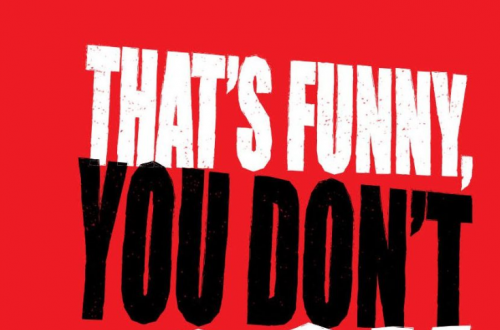Islam and the Future of Tolerance comprises a dialogue between Sam Harris, well known for his critical take on Islam, and Maajid Nawaz, the cofounder of Quilliam. The starting point is a familiar one – Harris sympathises with Nawaz’s reforming instinct but maintains that Islam is not really a religion of peace and that the ‘extremists’ are interpreting the faith’s doctrines correctly rather than distorting them.
Nawaz and Harris first discuss what they call the ‘concentric circles’ of Islam, with the most extreme violent jihadists on the inside, and liberal moderates on the outside. It’s the middle ground which is hardest to taxonomize. For example Nawaz notes that many conservative traditionalists with challenging views reject political Islamism (pp. 25-6). Others aren’t even particularly religious but are still strongly tribalist. As Nawaz points out:
Yet I suspect that for many conservative or tribalist (yet non-religious) Muslims, my talking to you is more problematic than my talking to jihadists. That highlights the extent of the problem we face today. (p. 29)
Of course it’s not just Muslims who have responded furiously to Sam Harris and Maajid Nawaz having a conversation. Nathan Lean attacked atheist Harris for having the temerity to write about Islam and insultingly swept aside Nawaz’s own contribution to the book.
It’s common for people interested in these issues to remain in their own self-validating bubbles and angrily dismiss those on the other side as racists/neocons/taqiyaa merchants/apologists. What’s refreshing about this book is that, although Sam Harris doesn’t pull his punches, he engages courteously with Nawaz and attends to his counter-arguments. Nawaz doesn’t duck Harris’s challenges – he fully accepts that polls of UK Muslim opinion, for example, are troubling although he does make the (reasonable) point that when people say they want to live under Shari’ah they may mean different things (p. 33).
Harris and Nawaz fully agree that Islamism cannot be separated from religion. Nawaz makes some pithy points about liberal apologists – ‘regressive leftists’ to use his phrase.
While they rightly question every aspect of their ‘own’ Western culture in the name of progress, they censure liberal Muslims who attempt to do so within Islam, and they choose to side instead with every regressive reactionary in the name of ‘cultural authencity’ and anticolonialism. (p. 49)
He also criticises anti-Muslim zealots who make perverse common cause with Islamists who think Islam/Muslims have no place in the secular West. Harris completely agrees that it is vital that these challenging issues aren’t left to the bigots.
On some occasions the only people making accurate claims about the motivations of Islamists and Jihadists are themselves dangerous bigots whom one wouldn’t want to consult on any topic. That’s terrifying. We have extremists playing both sides of the board in a clash of civilizations, and liberals wont’ speak sensibly about what’s happening. (p. 54)
Nawaz and Harris then turn to a discussion of what exactly is (or can be) meant by Qur’anic ‘literalism’. As Harris points out, we tends to describe as ‘fundamentalist’ those Christians who subscribe to a literal reading of the Bible whereas the Qur’an has a different status in Islam and for Muslims a belief that it is the inerrant word of God is a thoroughly mainstream position (p. 61). Nawaz does not deny this, but convincingly explains that, when faced with a complex and contradictory text, people striving to understand the Qur’an ‘literally’ may come up with quite different interpretations. He uses the example of the prohibition on alcohol – those who interpret this most ‘literally’ may decide that only grape-based alcohol is banned. Others extrapolate a complete ban on all alcohol – a reading which is both stricter and less literal. Harris counters that he finds some liberal interpretations of the Qur’an intellectually dishonest.
The problem is that moderates of all faiths are committed to reinterpreting, or ignoring outright, the most dangerous and absurd parts of their scripture – and this commitment is precisely what makes them moderates. But it also requires some degree of intellectual dishonesty, because moderates can’t acknowledge that their moderation comes from outside their faith … So when moderates claim to find their modern, ethical commitments within scripture, it looks like an exercise in self-deception. The truth is that most of our modern values are antithetical to the specific teachings of Judaism, Christianity, and Islam. And where we do find these values expressed in our holy books, they are almost never best expressed there. (p. 65)
Nawaz’s response to this is essentially pragmatic. He argues that a pluralist approach to interpretation – an acceptance that different people will find their own meaning in the Qur’an – should be promoted; an acknowledgement of uncertainty rather than an insistence on one ‘correct’ reading will, he argues, best further an alignment between Islam and tolerant secularism.
Like Mohammed Amin I found this a highly readable and stimulating book. Although they come at Islam from different backgrounds and perspectives, Harris and Nawaz manage to find common ground because they engage with the issues honestly and unflinchingly, and because each fully acknowledges that the other is arguing in good faith.


